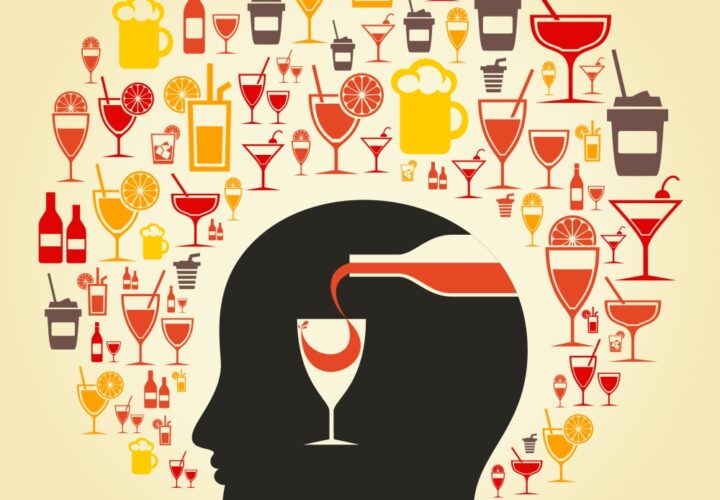A 2017 study on alcohol and Alzheimer's found that moderate to heavy drinkers were less likely to get dementia than those who abstained from drinking entirely.
What is the relationship between alcohol and Alzheimer’s? Does alcohol cause Alzheimer’s disease? These are questions scientists have been studying for years.
A 2017 study released by the University of California, San Diego, calls into question the effects of alcohol consumption on the development of dementia, a link that has been the subject of many studies in the search for lifestyle factors that contribute to Alzheimer’s.
The study followed 1,344 older adults over 29 years, tracking their daily alcohol consumption and assessing their cognitive function every four years. Here’s the surprising part: Compared to the non-drinkers, moderate to heavy drinkers were not only more likely to live to 85, but also more likely to live without any form of dementia.
It is important to point out that there were very few individuals in our study who drank to excess, so our study does not show how excessive or binge-type drinking may affect longevity and cognitive health in aging.
To define moderate and heavy drinking, the study relied on definitions from the National Institute on Alcohol Abuse and Alcoholism. For individuals over 65, moderate was defined as one drink per day five to seven days per week; for men under 65, it was up to two drinks per day. Heavy drinking was classified as up to three drinks per day for men and women over 65; for men under 65, it was four drinks per day. More than that was classified as “excessive.”
“This study is unique because we considered men and women’s cognitive health at late age and found that alcohol consumption is not only associated with reduced mortality, but with greater chances of remaining cognitively healthy into older age,” said senior author Linda McEvoy, Ph.D., an associate professor at UC San Diego School of Medicine.
Other Studies Show Alcohol Harms the Memory Center of the Brain
A toast to that news, right? Not so fast. Just a few months prior, a similar 30-year study of 550 people found that even moderate consumption of alcohol resulted in hippocampus atrophy, or degeneration when measured with an MRI. The hippocampus is responsible for memory and atrophy is an early marker of Alzheimer’s disease. The study gave participants three different memory tests and found that participants with higher consumption did worse on one, but not the other two, leading researchers to conclude that moderate consumption has an effect on the hippocampus and what they call “lexical fluency,” or comfort accessing a variety of words, which is a skill used to detect early dementia.
It’s important to note that both studies were conducted on people living in the same communities so other lifestyle factors may be at play. The study with a positive correlation between drinking and cognitive health focused on a middle to upper middle class suburb of San Diego with almost entirely white population participating, and more women than men. The other study included more men than women.
Authors of both studies stress that excessive drinking can lead to alcohol-related dementia, and even a positive correlation between alcohol consumption and cognitive function does not mean alcohol is responsible for better health. Other factors that are associated with alcohol consumption, like income and education, are also at play.
The Bottom Line for Alcohol and Alzheimer’s: Binge Drinking Is Never Good for Brain Health
“It is important to point out that there were very few individuals in our study who drank to excess, so our study does not show how excessive or binge-type drinking may affect longevity and cognitive health in aging,” McEvoy said. Long-term excessive alcohol intake is known to cause alcohol-related dementia.
Still, the new study may help you justify winding down your day with an ice cold beer or a glass of wine on occasion—as long as you don’t have other health problems.
“This study shows that moderate drinking may be part of a healthy lifestyle to maintain cognitive fitness in aging,” said lead author Erin Richard, a graduate student in the Joint San Diego State University/UC San Diego Doctoral Program in Public Health. “However, it is not a recommendation for everyone to drink. Some people have health problems that are made worse by alcohol, and others cannot limit their drinking to only a glass or two per day. For these people, drinking can have negative consequences.”



